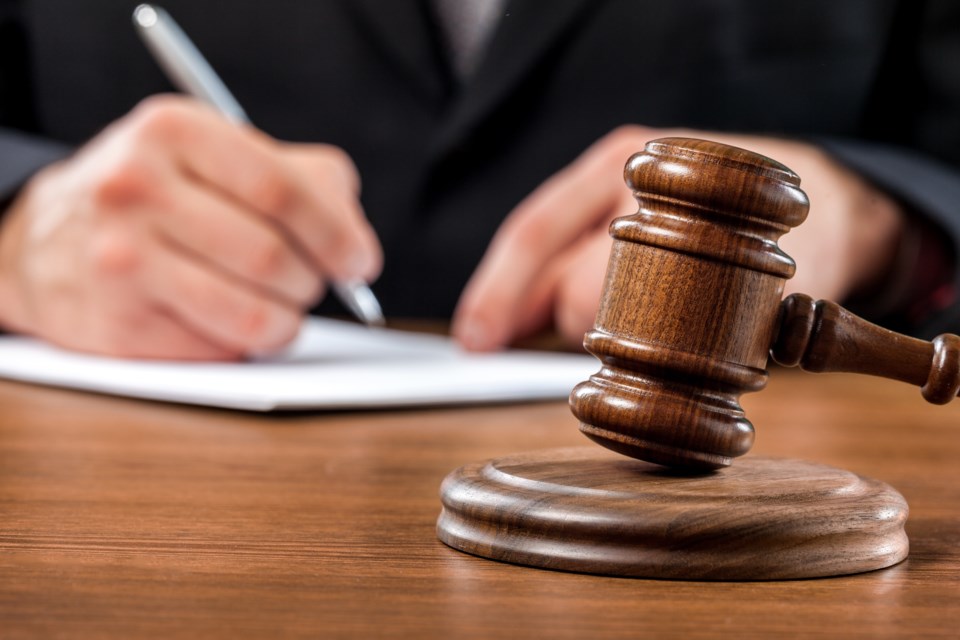A provincial court judge has dismissed two applications from groups that sought to have their charges quashed after they allegedly violated pandemic-related public health orders in 2021.
On Jan. 16, 2021, in Moose Jaw, police charged Mark L. Friesen, Jasmin R. Grandel, Richard B. Wintringham and Chey A. Craik with participating in an outdoor public gathering of more than 10 people.
Police also charged them with failing to comply with a public health order (PHO) dated Jan. 12, 2021, made under The Public Health Act, 1994 — known as “the act” — and The Disease Control Regulations — known as “the regulations” — contrary to The Public Health Act, 1994.
Meanwhile, on Oct. 27, 2021, police charged Hinderager Holdings Ltd. — which operates The Beacon in Caronport — for failing to require a patron to provide one piece of identification and proof that she was fully vaccinated against COVID-19 or had received a negative test within the past 72 hours.
The business was also charged with failing to comply with a PHO dated Oct. 19, 2021, which the province made under the act and the regulations.
Defence lawyer Elaine Anderson — representing both parties — applied for a declaration that the regulations and PHO were inconsistent with The Constitution Act, 1982 and were null and void.
Furthermore, she asked the judge to dismiss the charges and/or quash the proceedings. Alternatively, she asked that the applications be acquitted.
“The argument of the applicant essentially is that the PHOs under which the applicants are charged are unenforceable because the regulation which purports to authorize the orders are legally defective,” Judge Hendrickson wrote.
Anderson argued that the court needed to answer whether the executive — province of Saskatchewan — exceeded its authority when it enacted the regulation and PHO, he continued.
She believed that subsection 25.2 of the regulations was beyond the act’s legal power; the regulation and PHO were illegal for unauthorized sub-delegation of statutory power to the chief medical health officer; and the regulation and act were inconsistent with The Constitution Act, 1982.
Meanwhile, the Crown’s position was that the challenged regulation was not beyond the legal power of The Public Health Act and did not affect an invalid sub-delegation. The Crown also argued that the judge had no jurisdiction to make a dismissal order under The Constitution Act as the applicants requested.
Judge Hendrickson wrote that he considered three issues in this situation: whether the challenged regulation is beyond the legal power of its parent act, the Public Health Act, 1994, whether the challenged regulation was inconsistent with The Constitution Act 1982, and whether — if the regulation was beyond its power or inconsistent — there was a remedy to the situation.
Issue 1
The judge wrote that he was satisfied that the purpose and scope of the act were to protect the health and well-being of Saskatchewanians, so the answer to the first issue was “no.”
He acknowledged that the act allowed the government to establish measures to control the spread of infectious diseases and allowed for other measures, such as shutting down premises to prevent or control a health hazard.
Hendrickson disagreed with the applicants’ arguments that the health orders affected people’s fundamental freedoms, that the province essentially re-delegated power to itself to be exercised in an administrative or discretionary fashion, and that the regulation transformed a legislative power into an administrative power vested in the minister.
“… the powers conferred upon the Lieutenant Governor in Council … are distinct from the powers conferred upon the minister by the regulation,” he continued. “The language of the sub-delegation does not simply repeat the language of the delegation and the sub-delegate is not empowered to do the exact same thing the delegate is empowered to do.”
Issue 2
The judge wrote that he believed the applicants had not demonstrated that the regulation was inconsistent with The Constitution Act, 1982, so the answer to the second issue was “no.”
Anderson argued that unwritten constitutional principles and the principles associated with the rule of law precluded the provincial government from imposing the regulation. Moreover, she argued that the executive had no inherent power to take any action unauthorized by law, while the power to infringe on civil liberties is a substantive legislative power.
“… unwritten principles and the principles associated with the rule of law are no independent bases upon which to invalidate legislation,” wrote Hendrickson. “… the Supreme Court (has) said the unwritten principle of democracy cannot be used as a device for invalidating otherwise valid provincial legislation … .
“… case law says delegations such as the one effected by the regulations are consistent with the Constitution.”




